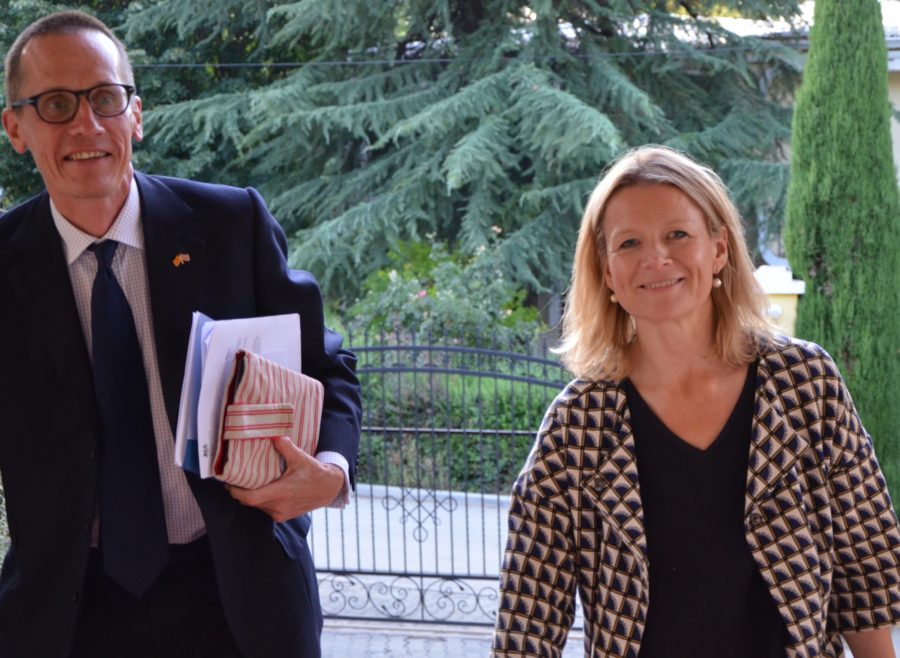28th July 2017 Skopje, North Macedonia
‘I leave Skopje optimistic’

When Foreign Secretary, Boris Johnson, met Prime Minister Zaev and Foreign Minister Dimitrov in Trieste at the Western Balkan Summit, he was impressed with their energy and determination to make changes and their readiness to take bold steps.
He welcomed their commitment to tackle reform challenges at home, to reset relations with neighbours and to re-energise Macedonia’s NATO and EU prospects. The Foreign Secretary pledged the UK’s 100% support and asked me to look at what that might look like. Two weeks later I found myself in Skopje on the eve of the publication of the Friendship agreement between Macedonia and Bulgaria. I saw first-hand the determination to build cooperation and a brighter future for the citizens of both countries and I heard from the government, political parties and civil society about their ambitions for Macedonia.
I learnt more about the 3-6-9 plan to reform institutions and deepen democracy. I heard about Macedonia’s aim to support global security as a member of NATO. And I met with a cross-party delegation in Parliament committed to seeing Parliament function effectively as a check on Government. The UK supports all those aims and we are developing projects and assistance to help.
Alongside the progress made with Bulgaria, Prime Minister Zaev and Foreign Minister Dimitrov told me about the steps they’ve taken to reach out and forge positive and productive relationships with other neighbours, Greece, Serbia and Albania. The UK applauds these steps, and welcomes the positive responses Macedonia has received. There is no doubt that some of the bilateral issues will be hard to resolve. We – as UK/international community – cannot deliver solutions; resolution of bilateral issues is firmly in the hands of Macedonia and its neighbours. But we offer our continued and wholehearted support to early progress.
The opportunities open to Macedonia are opportunities shared by others in the neighbourhood. Each of the Western Balkan countries wants to build a better future for their citizens; and each stands to gain from their neighbour’s success.
Good bilateral relationships between countries in the region should not be confined to resolving disagreements or avoiding tension. The aim should be to build strong partnerships in the region and with other European friends. If one country is able to grow their economy through better transport and digital communications links, then the economy of the region will grow. If neighbours are able to work more closely to tackle cross-border crime, then criminals will find it harder to operate in all countries. And if democracy is strengthened, the region will be more stable, prosperous and better able to attract investment and provide jobs and opportunity for young people.
These issues of connectivity and opportunity will be a core focus of our Western Balkan Summit next year. The Summit is part of the UK’s long term commitment to this region; to our mutual security and prosperity. We want to see this region thrive and look forward to working together to achieve that.
And while there are undoubtedly significant challenges ahead – for Macedonia and the region, I leave Skopje optimistic.
